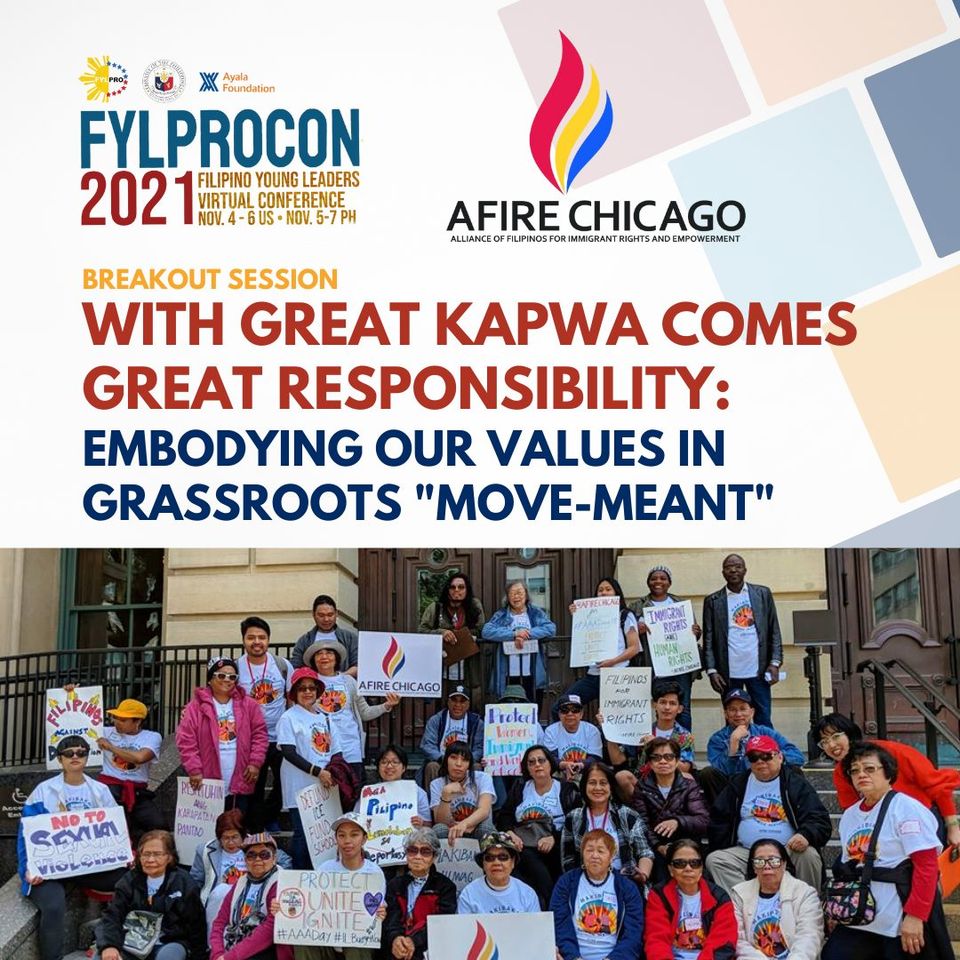With Great Kapwa Comes Great Responsibility: Embodying Our Values in Grassroots “Move-Meant”
Join us for a session of knowledge-sharing through storytelling, videos, and discussion.
As an organization founded by Filipino immigrants, we carry with us the legacy of People Power. We believe that the people most affected by structural injustice should be at the forefront of our movements. We seek to amplify the voices of those most silenced in our community: undocumented families, new immigrants, domestic workers, low-wage workers, seniors, and youth.
Learn how AFIRE Chicago has been rooting their approach in care, in order to inspire and build a more sustainable and liberating future for our Filipinx/a/o community.
Watch it on Youtube: https://www.youtube.com/watch?v=3ZprEd5O2ww
This panel is scheduled for:
Day 2: Nov. 5, 10:00-11:30 p.m. ET (Nov. 6, 10:00-11:30 a.m. Philippines)
Danielle “L” De Vera
Energy bender of mandirigma (“warrior”), and healer. I exist within the in-between, and believe that my calling in this life is to bridge people through storytelling and creation.
In community work, I often find my answers to difficult questions by exploring the dynamic of “how to honor the individual within the collective.” There is no one way to live this life, but I am so grateful to be in community, and to be able to cultivate spaces where we can “come as we are” and manifest a more beautiful, abundant, and liberated world by learning and practicing what it means to “show up for ourselves” and one another.
I love working with energy, and creating flow. I love to sing, work with my hands, and try new DIY projects. I am a community and wedding DJ, as I love to play music, celebrate life, and vibe with a broader crowd. My DJ name is “KnoWHiya” which is a pun for “Walang Hiya” (“No Shame”) and “Know Shame.”
André Adricula
Linguist and language teacher ng diyaspora. Within my teaching practice, I acknowledge and emphasize the unique individual history of each of my students, and I move with the intention of unpacking educational, linguistic, and intergenerational trauma. Where students seek reconnection to culture, I provide guidance towards reconnection to self. Because the Philippines is composed of many different ethnic groups speaking many different languages, I encourage reflection upon linguistic heritage and cultural history, empowering students to create meaning and connection for themselves within the diasporic Filipinxao community. I also interrogate access to and the study of Tagalog as an indicator of “Filipinx-ness.”
Outside of teaching, I love singing OPM classics, dancing to KPOP, and experimenting in the kitchen.

